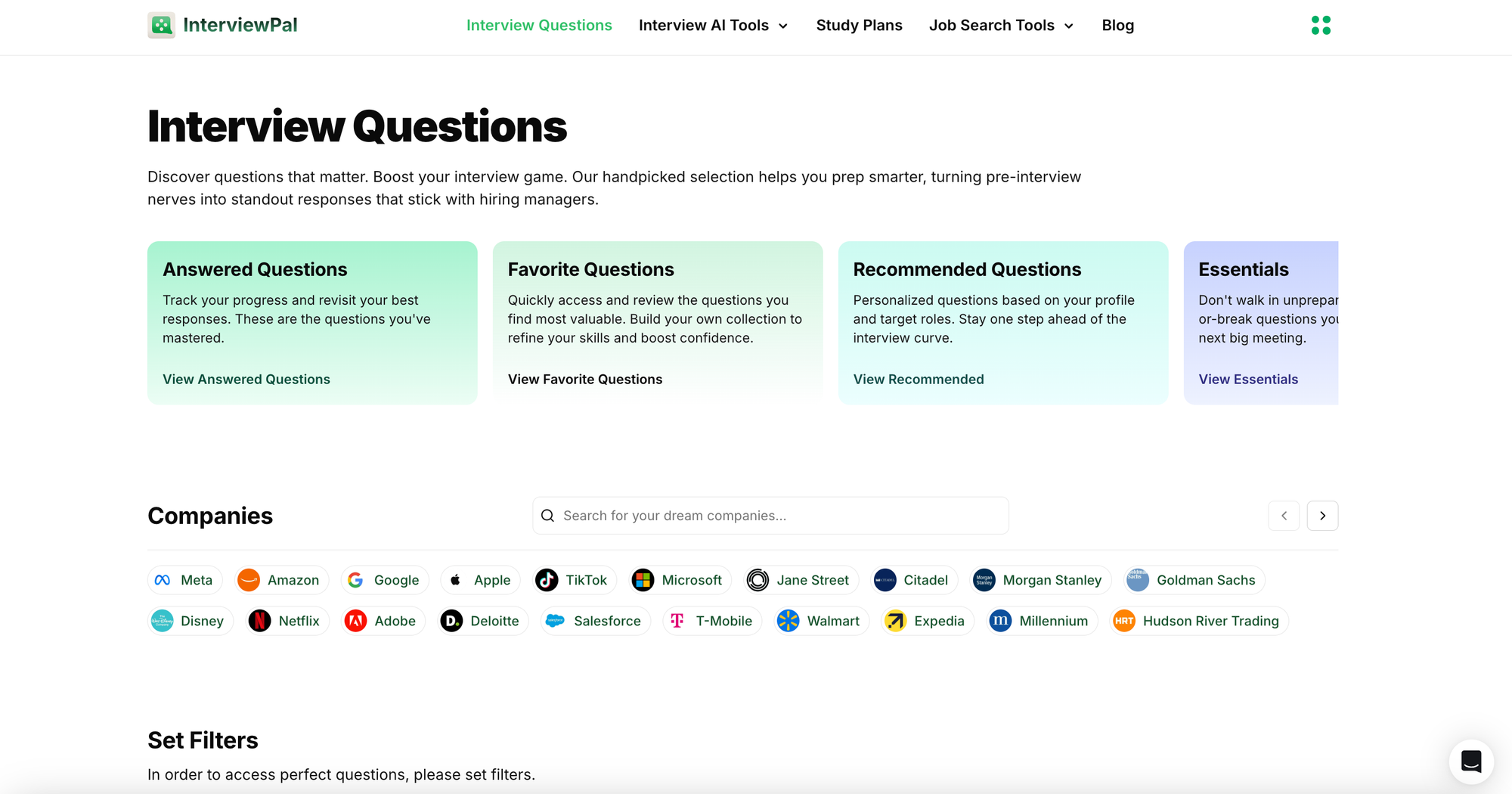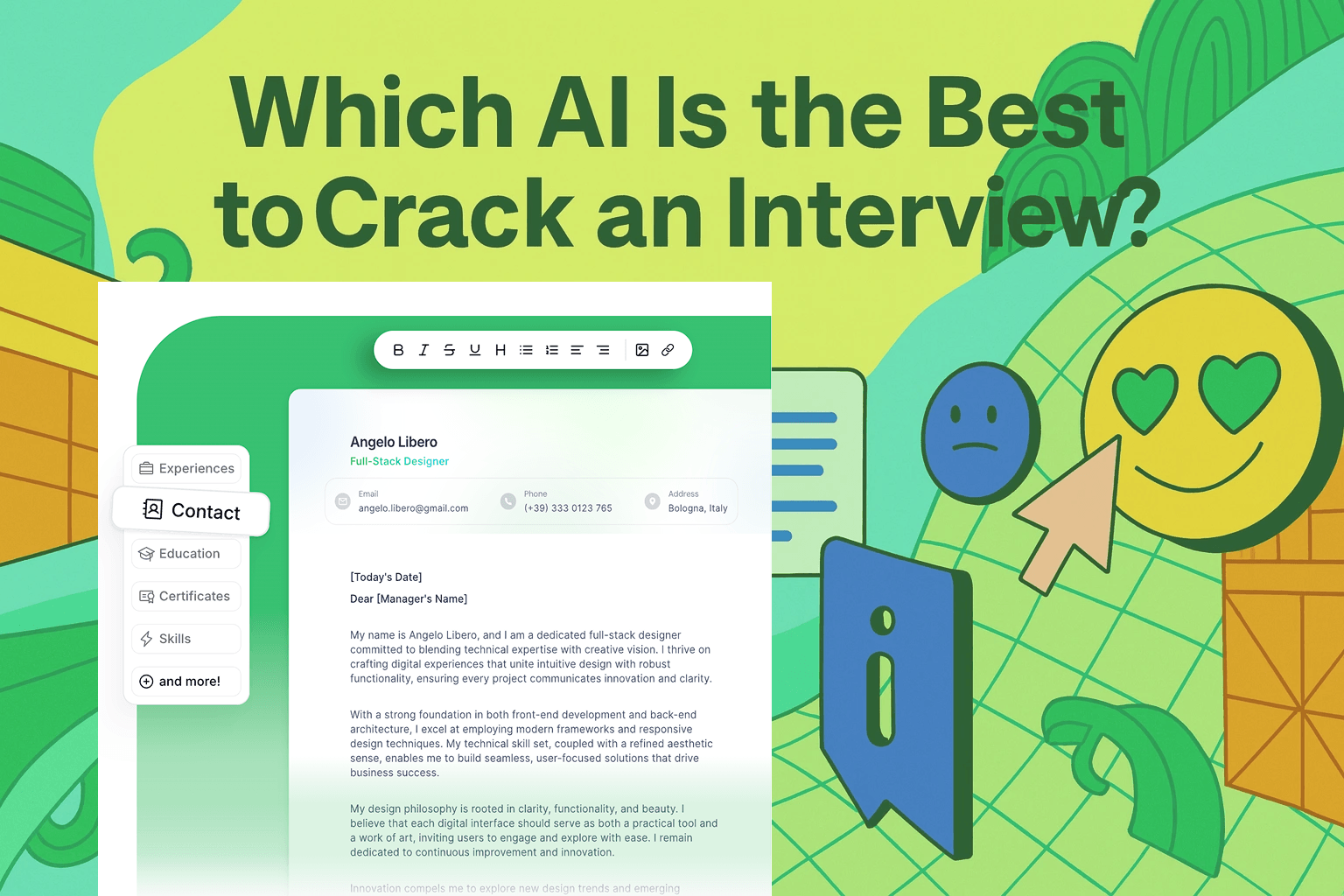The Search for the Right AI
If you’ve ever typed “Which AI is the best to crack an interview?” into Google, you’re not alone. Job seekers are asking this question more than ever. The hiring process has changed drastically. Candidates face multiple application filters, complex interview rounds, and often a silence at the end. In response, many are turning to artificial intelligence for help. But the question remains: which AI tool can actually make a difference?
This article will break down the different types of AI tools available, what really matters when preparing for interviews, and why a few specialized tools now outperform generic chatbots. If your goal is to land the job, you need more than vague answers. You need precision, preparation, and sometimes a little discreet support during the interview itself.
The Problem Candidates Face
Modern interviews are no longer just a 30-minute conversation. They can stretch across four or five rounds, mix in technical assessments, and involve different interviewers with varied styles.
On top of that, most resumes don’t even reach a recruiter’s desk. Applicant Tracking Systems (ATS) filter them out before a human ever reads them. Even if you get through, you’re often left guessing: What will they ask me? What stories should I prepare? How do I stay composed under pressure?
It’s no surprise people are looking for AI to fill those gaps. The challenge is finding an AI that is tailored to the real-world hiring process rather than just producing generic advice.

The Main Types of AI Interview Helpers
When people say “AI for interviews,” they often lump everything together. In reality, there are three main categories of tools:
- Resume Screeners and Optimizers
These tools analyze your resume to see if it passes ATS checks and highlight weak spots. They help you align your application with specific job postings. - Question Generators and Interview Prep Tools
These systems attempt to predict interview questions based on a job description or past hiring trends. Some are broad, while others focus on company-specific interview banks. - Live Interview Assistants
A newer category, these tools quietly support you during the interview itself. Think pacing reminders, subtle notes, or a hidden window that helps you stay confident.
Each category has its use, but the best solution is one that integrates all three.
What Makes a Good AI for Interviews?
Not every AI is created equal. A good interview-focused AI should check four boxes:
- Accuracy: The questions and feedback must reflect real-world hiring practices. Random or overly generic prompts don’t help.
- Practicality: It should be easy to use before and during the interview without creating more stress.
- Coverage: It needs to address the full journey: resume, prep, and performance.
- Discretion: For live support, the tool must be invisible and secure. No interviewer should know you’re using it.
When you evaluate AI tools through this lens, many general-purpose chatbots fall short. They might help you brainstorm, but they won’t prepare you in a structured, end-to-end way.
Why InterviewPal Stands Out
Here’s where InterviewPal enters the picture. Instead of being another chatbot, it offers a complete toolkit designed for the actual problems job seekers face.
- Interview Question Bank
Imagine knowing the kinds of questions Google, Deloitte, or JPMorgan have asked in the past. InterviewPal’s database collects these so you can prepare realistically rather than guessing. - Resume AI
This tool reviews your resume for both ATS filters and specific job descriptions. It ensures you’re not eliminated before you even get a chance. It also gives actionable edits, not just buzzword replacements. - Interview Copilot
This is the stealth assistant that sits quietly during your live interview. It offers prompts, pacing guidance, and note capture without being visible to the interviewer. Think of it as a discreet safety net that keeps you sharp under pressure.
Together, these tools cover the entire interview lifecycle: before, during, and after. That integration is what makes InterviewPal more effective than piecing together multiple free apps.
How to Use AI to Actually Crack an Interview
Let’s walk through a practical plan that shows how to use AI step by step.
- Start with Resume AI
Upload your resume. Compare it against the job description. Fix weak points so you pass ATS filters. This step alone increases your chances of getting called in. - Research with the Question Bank
Instead of Googling “top interview questions,” search the database for your target company or role. This gives you insight into what real recruiters and hiring managers have asked. - Practice Your Answers
Use those questions to rehearse responses. Write them down, speak them aloud, and adjust for clarity. AI-generated mock questions help, but grounding your practice in real examples is even better. - Use Copilot During the Interview
When the day comes, launch InterviewPal Copilot. It remains invisible to the interviewer but keeps you on track. If nerves strike, you have pacing guidance and prompts to lean on. - Review and Improve
After the interview, take notes in the Copilot interface and refine your answers for the next round.
This sequence turns AI from a passive research tool into an active partner in your job search.

What Other Tools Miss
It’s worth being candid. Many so-called AI interview helpers are little more than rebranded chatbots. They generate generic questions like “Tell me about yourself” or “What is your greatest weakness?” These might appear in an interview, but they don’t give you the competitive edge of knowing what your target company typically asks.
Other apps focus only on resume optimization and stop there. That leaves candidates stranded once they get called to the interview. And live interview assistants are still rare. Very few tools even attempt to discreetly support you in real time.
This is why a combination matters. To crack an interview, you need depth, not just breadth.
The Future of AI and Interviews
Employers are aware that candidates use AI. Some worry about authenticity, but the truth is simple: companies still want candidates who can communicate clearly, show competence, and connect with the role. AI is only a tool to get you there.
In fact, as interviews evolve, the candidates who use AI wisely will likely stand out more. Not because they cheat, but because they prepare more thoroughly. Confidence and clarity often separate the final hire from the runner-up.
We can expect AI tools to become more personalized, offering real-time coaching based on your past performances. But right now, few tools are mature enough to cover the full interview lifecycle.
Conclusion: Which AI Is the Best?
So, back to the original question: Which AI is the best to crack an interview?
The answer isn’t about picking the flashiest chatbot. It’s about finding an AI that supports you at every stage: getting past filters, preparing with real company questions, and staying composed under pressure.
Cracking an interview is never easy. But with the right tools, you can tilt the odds in your favor. If you’re serious about landing your next role, consider giving InterviewPal a try.


